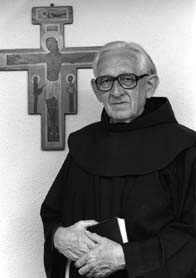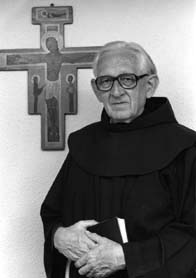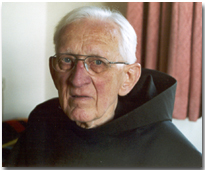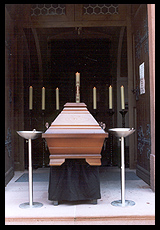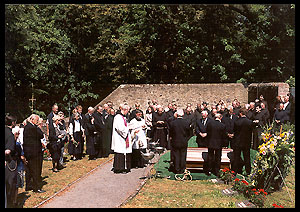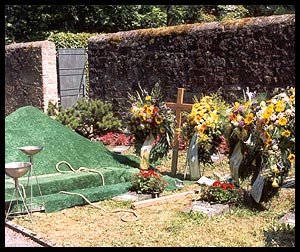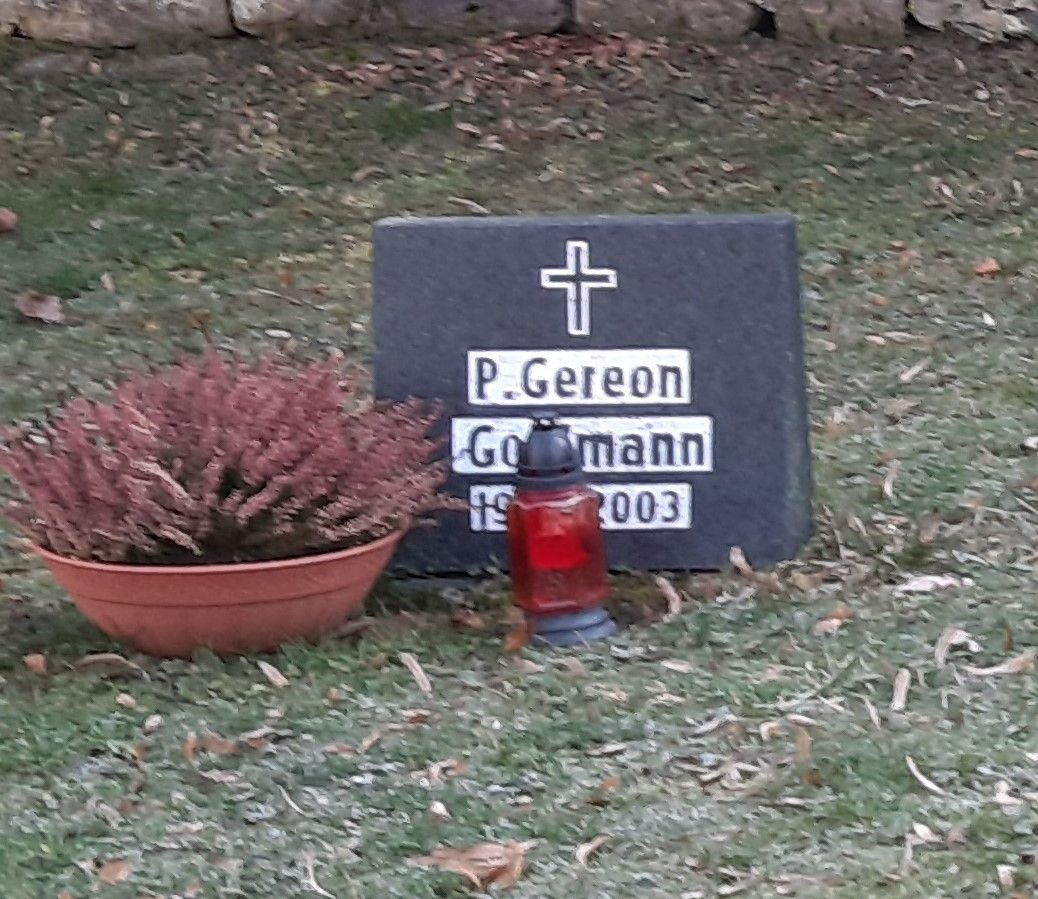While studying philosophy, he was taken into the armed forces, was assigned within the Waffen SS and sent to the Polish front. He visited Heinrich Himmler and wrote the confirmation of the freedom of religion granting the visit of the Holy Friars. In 1941, Karl visited the concentration camp of Dachau. The following year, on order of his superior officers, Himmler transferred him again to the armed forces due to "unfitness". After a brief time of vacation in his homeland, he contacted a resistance group and performed courier service in France and Italy. On September 15, 1942, he faced the judgment of the court martial in Kassel and was sent to the Russian Front. His punishment staggered to France and was later transferred to the Sicilian Front. On January 10, 1944, he received a private audience with Pope Pius XII, bestowing on him a special authority for priesthood consecration. He was captured at Monte Cassino and delivered the Kriegsgefangenenlager in Morocco and Algeria. On June 24, 1944, he was ordained a presbyter in the church of Notre Dame de Rivet in Algeria. He briefly performed spiritual work in Ksar-it-Souk, Morocco and in the turn of the years 1945 and 1946, was arrested and carried into the prison of the French Allies in Meknes, Morocco, where he was sentenced to death through a court martial on accusations of being an expelled National Socialist, hangman and leader of the concentration camp Dachau. In 1946 however, he was pardoned and moved into new warehouse custody. Ultimately in 1947 he was released and returned to Fulda. In 1948 and 1949, he was re-arrested and placed before a court martial of the American Allies. The judgment later stated that the attitude of the procedure lacked proofs.
Between 1949 and 1953, he underwent studies in theology and performed pastoral activity until moving to Japan as a missionary, where he served as parish priest of the parish of St. Elisabeth in Tokyo. He activated as a rag collector from 1954 and 1961, and in 1965, was awarded for good deeds. From 1954 until 1975, he managed to build churches, homes, hospitals, social stations, social residential constructions and presided collections and construction of a social service out of money contributions. He also made a settlement of interest-free loans for the needy. Goldmann performed further pastoral Work with baptisms, priestly consecrations, presentations and sermons throughout Japan and organized pilgrimages to Israel and Europe. From 1965 till 1994, he took care of the building of homes, churches, cloisters, hospitals and stations for the Mission Province of the Carmelites in Kerala, South India. In 1974, he flew back to Fulda on arrangement.
In 1975, Friar Karl founded the St. Gregorius-Instituts for church music and liturgy in Tokyo and on September 26, 1979, inaugurated the Church Music Institute, while retaining his duties of St. Elisabeth's parish, which was later succeeded by a Japanese friar. In 1993, he was received by the Japanese Emperor in recognition for his social work after founding of the Santa Maria Child Home. On January 25, 1994, after a serious illness, he returned back to Fulda, where he lived until his demise in the Franciscan convent, which occurred on July 26, 2003, at the age of 86.
While studying philosophy, he was taken into the armed forces, was assigned within the Waffen SS and sent to the Polish front. He visited Heinrich Himmler and wrote the confirmation of the freedom of religion granting the visit of the Holy Friars. In 1941, Karl visited the concentration camp of Dachau. The following year, on order of his superior officers, Himmler transferred him again to the armed forces due to "unfitness". After a brief time of vacation in his homeland, he contacted a resistance group and performed courier service in France and Italy. On September 15, 1942, he faced the judgment of the court martial in Kassel and was sent to the Russian Front. His punishment staggered to France and was later transferred to the Sicilian Front. On January 10, 1944, he received a private audience with Pope Pius XII, bestowing on him a special authority for priesthood consecration. He was captured at Monte Cassino and delivered the Kriegsgefangenenlager in Morocco and Algeria. On June 24, 1944, he was ordained a presbyter in the church of Notre Dame de Rivet in Algeria. He briefly performed spiritual work in Ksar-it-Souk, Morocco and in the turn of the years 1945 and 1946, was arrested and carried into the prison of the French Allies in Meknes, Morocco, where he was sentenced to death through a court martial on accusations of being an expelled National Socialist, hangman and leader of the concentration camp Dachau. In 1946 however, he was pardoned and moved into new warehouse custody. Ultimately in 1947 he was released and returned to Fulda. In 1948 and 1949, he was re-arrested and placed before a court martial of the American Allies. The judgment later stated that the attitude of the procedure lacked proofs.
Between 1949 and 1953, he underwent studies in theology and performed pastoral activity until moving to Japan as a missionary, where he served as parish priest of the parish of St. Elisabeth in Tokyo. He activated as a rag collector from 1954 and 1961, and in 1965, was awarded for good deeds. From 1954 until 1975, he managed to build churches, homes, hospitals, social stations, social residential constructions and presided collections and construction of a social service out of money contributions. He also made a settlement of interest-free loans for the needy. Goldmann performed further pastoral Work with baptisms, priestly consecrations, presentations and sermons throughout Japan and organized pilgrimages to Israel and Europe. From 1965 till 1994, he took care of the building of homes, churches, cloisters, hospitals and stations for the Mission Province of the Carmelites in Kerala, South India. In 1974, he flew back to Fulda on arrangement.
In 1975, Friar Karl founded the St. Gregorius-Instituts for church music and liturgy in Tokyo and on September 26, 1979, inaugurated the Church Music Institute, while retaining his duties of St. Elisabeth's parish, which was later succeeded by a Japanese friar. In 1993, he was received by the Japanese Emperor in recognition for his social work after founding of the Santa Maria Child Home. On January 25, 1994, after a serious illness, he returned back to Fulda, where he lived until his demise in the Franciscan convent, which occurred on July 26, 2003, at the age of 86.
Sponsored by Ancestry
Advertisement
Advertisement
